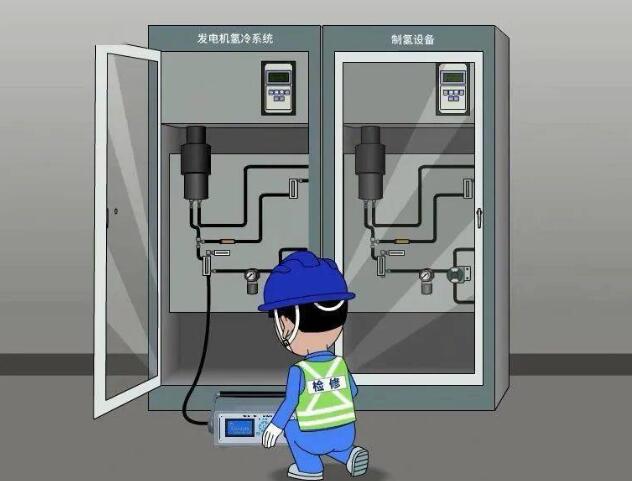Solutions
- Laboratory&University
- Hydrogen in power plants
- Hydrogen Production and Refueling Station
- Large-scale on-site hydrogen production
- Hydrogen Production using Solar Energy
- Hydrogen Production using Wind Energy
- Hydrogen production from other renewable electric power
- Distributed hydrogen generation cogeneration
Hydrogen in power plants
In the process of power production, when the generator turns mechanical energy into electric energy, it will inevitably produce energy loss. These lost energies eventually turn into heat energy, which raises the temperature of the rotor, stator and other parts of the generator. In order to export this heat, the generator is often forced to cool.
Commonly used cooling methods are air cooling, water cooling and hydrogen cooling.
Because the heat conductivity of hydrogen is 7 times that of air, and the cooling efficiency of hydrogen is higher than that of air cooling and water cooling, the power plant generator set generally adopts water hydrogen hydrogen or all hydrogen cooling.

Hydrogen production equipment has been put into operation in many power plants for many years, and the technology of hydrogen production by alkaline water electrolysis has also been certified in practice and is very mature.
In addition, it has long-term application in traditional industries such as weather balloons.